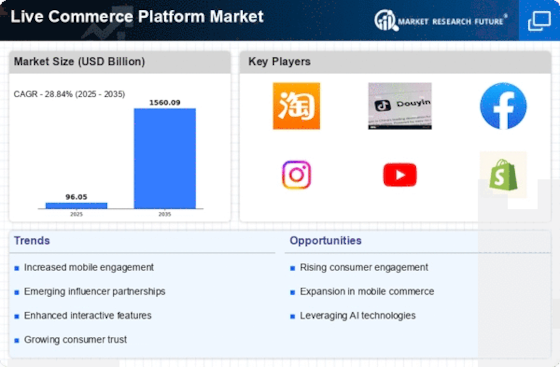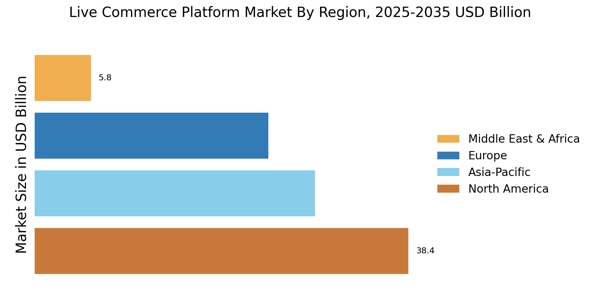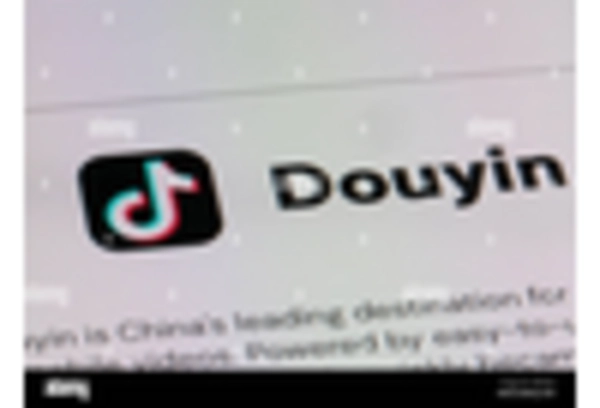Rise of Social Media Influence
The increasing influence of social media platforms is a key driver in the Live Commerce Platform Market. As consumers increasingly turn to social media for product recommendations, brands are leveraging these platforms to engage with their audience in real-time. This trend is evidenced by the fact that approximately 54% of social media users utilize these platforms to research products before making a purchase. The integration of live commerce features into social media applications allows brands to showcase products dynamically, enhancing user engagement and driving sales. This shift towards social commerce is expected to contribute significantly to the growth of the Live Commerce Platform Market, as businesses seek to capitalize on the vast user base of social media.
Integration of Payment Solutions
The integration of diverse payment solutions is enhancing the Live Commerce Platform Market. As consumers become more comfortable with digital transactions, the demand for seamless payment options during live shopping events is increasing. Platforms that offer multiple payment methods, including digital wallets and buy-now-pay-later options, are likely to attract a broader audience. Recent statistics indicate that 70% of consumers prefer platforms that provide a variety of payment options, which can significantly reduce cart abandonment rates. This trend suggests that the ability to facilitate smooth transactions will be a crucial factor in the success of live commerce platforms, thereby driving market growth.
Emergence of Influencer Partnerships
The emergence of influencer partnerships is a notable driver in the Live Commerce Platform Market. Influencers possess the ability to reach large audiences and can effectively promote products during live shopping events. This strategy not only enhances brand visibility but also builds trust among consumers, as they often view influencers as relatable figures. Data indicates that 49% of consumers rely on influencer recommendations when making purchasing decisions. As brands increasingly collaborate with influencers to host live commerce events, the market is likely to see a surge in engagement and sales, further solidifying the role of influencer partnerships in the growth of the Live Commerce Platform Market.
Technological Advancements in Streaming
Technological advancements in streaming technology are propelling the Live Commerce Platform Market forward. Enhanced internet connectivity, particularly with the rollout of 5G technology, allows for high-quality video streaming with minimal latency. This improvement in streaming capabilities enables brands to deliver seamless live shopping experiences, which are crucial for consumer satisfaction. According to recent data, the number of users engaging in live streaming commerce is projected to reach 500 million by 2026. As more consumers become accustomed to interactive shopping experiences, the demand for sophisticated live commerce platforms is likely to increase, further driving the market's expansion.
Consumer Demand for Interactive Shopping Experiences
The growing consumer demand for interactive shopping experiences is a significant driver in the Live Commerce Platform Market. Modern consumers are increasingly seeking engaging and immersive shopping experiences that traditional e-commerce cannot provide. Live commerce platforms offer real-time interaction with hosts, allowing consumers to ask questions and receive immediate feedback. This level of engagement is particularly appealing to younger demographics, who are more inclined to participate in live shopping events. Market data suggests that live commerce can increase conversion rates by up to 30%, indicating a strong potential for revenue growth in the Live Commerce Platform Market as brands adapt to these consumer preferences.

















